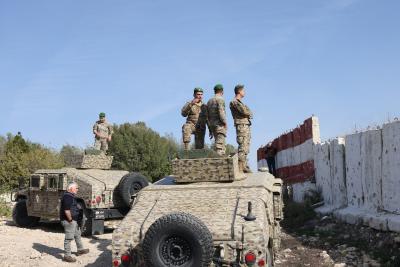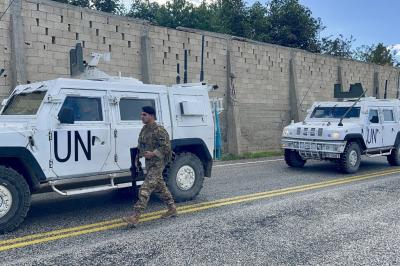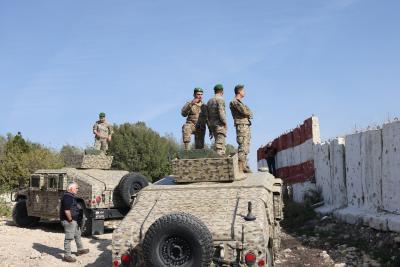In this backdrop, it's crucial to understand that even the mere hint, be it in planning or suggestion, of a potential threat to Russia from the south, would significantly impact its military response capabilities, especially in the event of a conflict with Ukraine.
Undoubtedly, a clear observation emerges: Russia maintains vigilant eyes on two strategic fronts. On one hand, its focus remains unyielding on the military front with Ukraine, a widely acknowledged reality. Yet for this vast nation, stretching over most of Northern Eurasia, another equally pressing concern vies for its attention. This involves closely monitoring its southern borders, which run alongside the majestic Caucasus mountains, home to nations like Armenia, Azerbaijan, and Georgia. This strategic endeavor forms a natural bridge between the European and Asian continents, granting its vigilance a dual geopolitical significance.
Heightened Alert on the Southern Front
From a military strategy perspective, the Caucasus mountains, which act as a natural border between Russia, Armenia, Azerbaijan, and Georgia, hold a pivotal position as Russia's protective shield. This region, located northwest of the mountains, extends to the Sea of Azov and the Ukrainian borders near the resource-rich Donbass area, which has witnessed conflicts for many years. To the northeast lies the Volga River and the city once known as Stalingrad – the site of one of history's fiercest battles, which was renamed Volgograd in 1961 under Nikita Khrushchev's leadership to distance it from the Stalin era.
In this backdrop, it's crucial to understand that even the mere hint, be it in planning or suggestion, of a potential threat to Russia from the south, would significantly impact its military response capabilities, especially in the event of a conflict with Ukraine. Thus, safeguarding the Caucasus front against potential threats is paramount for the Russian armed forces, who still cherish the memory of the Red Army's pivotal battle for Stalingrad in February 1942. Given this perspective, it's essential for the Russian military to currently bolster its positions in the northern Caucasus, recognizing the strategic significance of this front and its bearing on the overall military landscape.
Between Historical Conflicts and Present Stakes
Historically speaking, Russia has faced two significant conflicts with Chechnya: the first from 1994 to 1996 and the second from 1999 to 2000. These wars led to Chechnya's annexation by Russia, making it a close ally. Moreover, in August 2008, Russia initiated a comprehensive land, sea, and air military campaign against Georgia to counter its Western alignment and democratic orientation. Russia's victories in these border conflicts profoundly shaped Vladimir Putin's strategic vision regarding border regions' importance.
However, shifting from the tumultuous past to the present, oil-rich Azerbaijan has recently mobilized its military forces to take over the Nagorno-Karabakh region, resulting in the displacement of over 120,000 Armenians in a week. These developments raise concerns about potential ethnic cleansing, as warned by Armenia. Nagorno-Karabakh, a small region nestled between Azerbaijan and Armenia, is primarily Armenian-inhabited, further complicating the geopolitical scenario.
Shuffling the Deck Again?
Undoubtedly, these events' repercussions might not immediately manifest on the ground, but they signal palpable tension that could escalate into conflict soon. While Russia maintains robust peacekeeping capabilities in a currently relatively calm region, this strength could also allow it to act against Armenia or reignite the Georgian conflict at will. Hence, is Armenia left with the sole options of negotiating a deal with Russia or seeking U.S. support?
The U.S., on its part, aims to retain some influence in this region, thereby keeping the threat of an incursion into northern Caucasus looming. Although such a move seems nearly impossible, should it occur, it undoubtedly signifies a daring gambit at a time when Russia is acutely aware of America's readiness for reckless risks. As Russia continues to advance in Ukraine, the U.S. might opt to play another card to initiate negotiations aiming to curb the deteriorating situation in Ukraine.
In conclusion, the crux lies in Georgia and Azerbaijan's willingness to align with the U.S. in exchange for military support. Given the apparent close ties between Azerbaijan and Russia, this alignment with the U.S. seems nearly unattainable. Yes, Russia has managed to secure the Caucasus region militarily, turning the unexpected into reality. But what potential scenarios might Russia consider in the near future? That's a story for another time.
Please post your comments on:
[email protected]
 Politics
Politics













